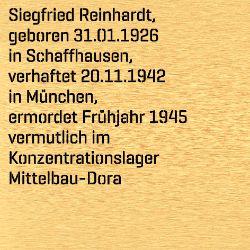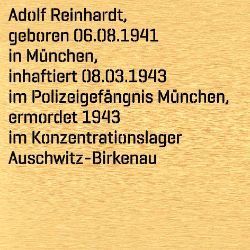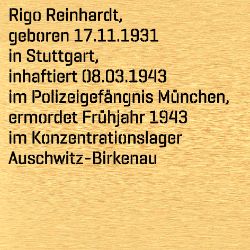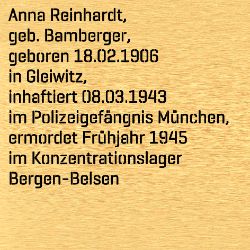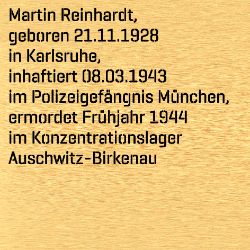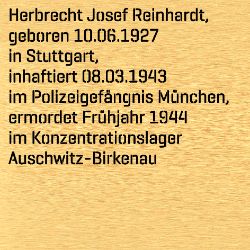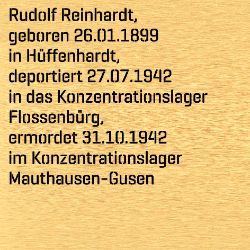Margarete Reinhardt was born on November 4, 1929 in Munich to Anna and Rudolf Reinhardt. Her father was a bandleader and performed throughout southern Germany. Margarete had five brothers: Siegfried, Herbrecht Josef, Martin, Rigo, and Adolf. A family friend has told of the great musical talent of all the family members and their harmonious life together. As Sinti, Margarete Reinhardt and her family were subjected to ever-increasing restrictions of their rights in the Nazi period. Upon the outbreak of the Second World War, “gypsies” were no longer permitted to move about freely: the “Festsetzungserlass”, a decree from October 17, 1939 restricting freedom of movement, meant that they had to remain where they were at the time. In summer 1940, the Reinhardt family could move to Munich. Their last place of residence was in Perlacher Straße 100 (today Sintpertstraße 9-15), in a garden allotment settlement. The family was split up in 1942. The criminal police deported Margarete’s father Rudolf Reinhardt to Flossenbürg concentration camp in the summer; the SS murdered him just a few months later. On September 22, 1942 the twelve-year-old Margarete Reinhardt was sent to the Clemens-Maria-Kinderheim, a children’s home at Spixstraße 14 in Munich. Her brothers Herbrecht and Martin were also committed to a home. In the Nazi period, numerous young Sinti and Roma were forcibly taken from their families and sent to reformatories ‒ allegedly to get them, stereotyped as a nomadic people, to adopt a sedentary life. On March 8, 1943 the criminal police took Margarete to the police prison in Ettstraße along with her mother and brothers Herbrecht, Martin, Rigo, and Adolf. Five days later they were deported in livestock wagons to the “gypsy compound” at the Auschwitz-Birkenau concentration and extermination camp. The SS murdered her there in spring 1944. Her mother and brothers also perished during the genocide against Sinti and Roma. (text Sarah Grandke, editor C. Fritsche, translation P. Bowman)




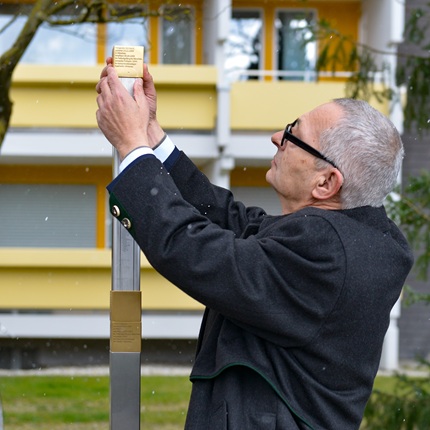
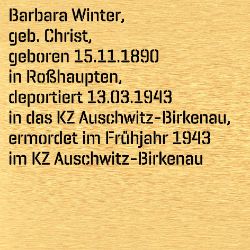

-Winter_image.jpg/jcr:content/EZ_BILD_15591.jpg)
